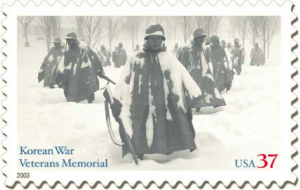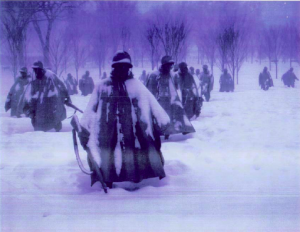
Against Monopoly
defending the right to innovate
Monopoly corrupts. Absolute monopoly corrupts absolutely.
Copyright Notice: We don't think much of copyright, so you can do what you want with the content on this blog. Of course we are hungry for publicity, so we would be pleased if you avoided plagiarism and gave us credit for what we have written. We encourage you not to impose copyright restrictions on your "derivative" works, but we won't try to stop you. For the legally or statist minded, you can consider yourself subject to a Creative Commons Attribution License.
current posts | more recent posts | earlier posts
OK Go and the Old Media Model
[Posted at 03/31/2010 08:34 AM by Stephan Kinsella on Innovation  comments(1)]
comments(1)]
Kinsella Intellectual Property discussion on Freedomain Radio Book Club
The Freedomain Radio Book Club had a great discussion with Stephan about intellectual property which I thought you might enjoy...We did this yesterday, Mar. 20, 2010. It was about an hour and was a nice, intelligent discussion of IP and related libertarian issues. (Local MP3 file -- 59MB)FDR1616 Stephan Kinsella on Intellectual Property from Freedomain Radio
Play Now
[Posted at 03/21/2010 08:33 AM by Stephan Kinsella on Libertarian Perspectives  comments(0)]
comments(0)]
Don't Call Them "Pirates"
 So says Big Copyright, which adopted the term for copyright infringers because of "its suggestions of theft, destruction, and violence." But now, the "pirates"have "co-opted the term, adopting it with gusto and hoisting the Jolly Roger across the Internet (The Pirate Bay being the most famous example)."
So says Big Copyright, which adopted the term for copyright infringers because of "its suggestions of theft, destruction, and violence." But now, the "pirates"have "co-opted the term, adopting it with gusto and hoisting the Jolly Roger across the Internet (The Pirate Bay being the most famous example)."
I agree. Copyright infringers should not be called pirates. A pirate is a robber, plunderor, predator. The term much better describes the patent and copyright lobbies, which use state monopoly grants to plunder and rob the masses.
[Posted at 03/19/2010 05:19 AM by Stephan Kinsella on Piracy  comments(15)]
comments(15)]
Dancing on the Head of the Fair Use Pin
 As noted in Justin Levine's post, Dissent of the Day, a recent decision of the Court of Appeals for the Federal Circuit holds "that a U.S. stamp which depicts a view of a public Korean War memorial violates the copyright of the sculptor who designed it." The case involved the sculptures made by Gaylord, a photograph of them made by John Alli (a "derivative work"), and a stamp made using Alli's photograph. Alli and the USPS did not get Gaylord's permission. Gaylord sued for copyright infringement.
As noted in Justin Levine's post, Dissent of the Day, a recent decision of the Court of Appeals for the Federal Circuit holds "that a U.S. stamp which depicts a view of a public Korean War memorial violates the copyright of the sculptor who designed it." The case involved the sculptures made by Gaylord, a photograph of them made by John Alli (a "derivative work"), and a stamp made using Alli's photograph. Alli and the USPS did not get Gaylord's permission. Gaylord sued for copyright infringement.
The lower court had made three determinations:
1. "Mr. Gaylord was the sole author of the soldier sculptures" (the government was not a joint author);
2. "his sculptures were not exempt from copyright protection under the Architectural Works Copyright Protection Act (AWCPA)", and
3. "the stamp made fair use of Mr. Gaylord's work."
Thus, although points 1 and 2 went Gaylord's way, the USPS still won in the lower court since it had the fair use defense.
On appeal, the CAFC upheld the lower court's rulings on points 1 and 2, and reversed on 3: they said the stamp was not a fair use. Now I can't say I am outraged at an agency of the federal government being hampered by federal copyright law. And I am not especially interested in whether the CAFC and lower court were right regarding the first two points (though Judge Pauline Newman, in dissent, was none too happy about it). And while I think the CAFC's holding on fair use seems defensible based on the language of the fair use statute, it's instructive to read the court's reasoning on the "fair use" claim, to get an idea of how obviously artificial and unlibertarian copyright law is. (I've written on "Fair Use" before: see World's Fair Use Day; IP: The Objectivists Strike Back!.)
To decide whether an unauthorized use of a copyrighted work is permissible as a "fair use," the court has to consider four "factors":
- The purpose and character of the use, including whether such use is of commercial nature or is for nonprofit educational purposes
- The nature of the copyrighted work
- The amount and substantiality of the portion used in relation to the copyrighted work as a whole
- The effect of the use upon the potential market for, or value of, the copyrighted work.
 Now, it is quite obvious that this is purely artificial law, motivated by unprincipled, utilitarian considerations, and that these factors are completely unobjective, vague, and have nothing to do with justice or rights. Consider how the CAFC "applied" these factors (and ended up with a result opposite to the lower court). First, the court informs us, "Fair use is a mixed question of law and fact." and "Because 'the doctrine is an equitable rule of reason, no generally applicable definition is possible, and each case raising the question must be decided on its own facts.'" Ah. Well that sounds like objective law to me. So, the court has to review the 4 "factors," and "Each factor is 'to be explored, and the results weighed together, in light of the purposes of copyright.'" Weighed together? Interpersonal utility value comparison FAIL. The court then tries to apply each of the 4 factors to the stamp to determine whether it was fair use. The court notes that the first factor can turn on whether the derivative work is "transformative": "whether the new work merely ‘supersede[s] the objects' of the original creation or instead adds something new, with a further purpose or different character, altering the first with new expression, meaning, or message; it asks, in other words, whether and to what extent the new work is ‘transformative.'" More objective law with precise boundaries! The lower court held that the stamp was transformative:
Now, it is quite obvious that this is purely artificial law, motivated by unprincipled, utilitarian considerations, and that these factors are completely unobjective, vague, and have nothing to do with justice or rights. Consider how the CAFC "applied" these factors (and ended up with a result opposite to the lower court). First, the court informs us, "Fair use is a mixed question of law and fact." and "Because 'the doctrine is an equitable rule of reason, no generally applicable definition is possible, and each case raising the question must be decided on its own facts.'" Ah. Well that sounds like objective law to me. So, the court has to review the 4 "factors," and "Each factor is 'to be explored, and the results weighed together, in light of the purposes of copyright.'" Weighed together? Interpersonal utility value comparison FAIL. The court then tries to apply each of the 4 factors to the stamp to determine whether it was fair use. The court notes that the first factor can turn on whether the derivative work is "transformative": "whether the new work merely ‘supersede[s] the objects' of the original creation or instead adds something new, with a further purpose or different character, altering the first with new expression, meaning, or message; it asks, in other words, whether and to what extent the new work is ‘transformative.'" More objective law with precise boundaries! The lower court held that the stamp was transformative:
The court determined that "while both the Stamp and ‘The Column' are intended to honor veterans of the Korean War, the Stamp is transformative, providing a different expressive character than ‘The Column.'" ... It explained that Mr. Alli transformed the three-dimensional sculpture with his photograph by "creating a surrealistic environment with snow and subdued lighting where the viewer is left unsure whether he is viewing a photograph of statues or actual human beings." ... The court determined that the Postal Service further transformed The Column by "making it even grayer, creating a nearly monochromatic image. This adjustment enhanced the surrealistic expression ultimately seen in the Stamp by making it colder." ... The Court of Federal Claims concluded that the stamp was "a transformative work, having a new and different character and expression than Mr. Gaylord's ‘The Column.'"
But no, the CAFC disagrees:
As a preliminary matter, we note that the inquiry must focus on the purpose and character of the stamp, rather than that of Mr. Alli's photograph. The stamp does not reflect any "further purpose" than The Column. ... As the Court of Federal Claims found, both the stamp and The Column share a common purpose: to honor veterans of the Korean War. ... We conclude that the stamp does not transform the character of The Column. Although the stamp altered the appearance of The Column by adding snow and muting the color, these alterations do not impart a different character to the work. To the extent that the stamp has a surreal character, The Column and its soldiers themselves contribute to that character. Indeed, the Penn State Team suggested that the Memorial have a "dream-like presence of ghostly figures." Capturing The Column on a cold morning after a snowstorm rather than on a warm sunny day does not transform its character, meaning, or message. Nature's decision to snow cannot deprive Mr. Gaylord of an otherwise valid right to exclude.
Gotta love that last touch: "Nature's decision to snow cannot deprive Mr. Gaylord of an otherwise valid right to exclude." O, the majesty of the copyright law! The court the applies the other three factors, holding that two of them "weigh against" fair use, while the last one, "market impact," favors a fair use finding. So, I guess if you have 3 out of four, the 3 "weigh" more than the fourth!
Weighing the factors, we conclude that the government's use of The Column in the stamp was not a fair use. Even though the stamp did not harm the market for derivative works, allowing the government to commercially exploit a creative and expressive work will not advance the purposes of copyright in this case.
Who can really believe such unprincipled, vague "factors" have anything to do with justice? Yet you will see pro-IP libertarians trot this out all the time. Why? Because if you apply IP law itself--copyright or patent--wild injustices result. So to blunt the edges and make the law more palatable, exceptions are made--ad hoc, unprincipled exceptions to a draconian, unjust, unprincipled legislative scheme. Libertarians usually support IP because they have accepted the state's propaganda lumping IP in with regular property, and so they tend to assume the various exceptions are also legitimate. Until you call them on it, and point out how they pretend to support IP for principled reasons yet are supporting a utilitarian-grounded exception, whereupon they will usually sheepishly back down; but this leaves them with a dilemma, since the law they favor, absent its rickety patches, is even more manifestly unjust.
[Posted at 03/01/2010 01:46 PM by Stephan Kinsella on Copyright  comments(1)]
comments(1)]
Interview: Nina Paley on Copyright
TCLP 2010-02-24 Interview: Nina Paley
This is a feature cast, an episode of The Command Line Podcast.
No listener feedback this week.
Due to the length of the interview, there is also no new hacker word of the week this week.
The feature this week is an interview with cartoonist and animator, Nina Paley, creator of "Sita Sings the Blues". I've spoken and written about Nina's story before, the troubles clearing her use of Annette Hanshaw's torch songs that led her to work with Karl Fogel at QuestionCopyright.org. In the course of the interview, we also mention the store for "Sita" merchandise , the creator endorsed mark, "Minute Memes", the "Sita" soundtrack by Todd Michaelsen, "Sita" on a persistence of vision wheel based display, and Bill Cheswick's poster made from every frame of "Sita". Sadly, by the time you hear this, you'll have missed her talk at AU but I discuss it a bit in the intro to this episode.
Grab the detailed show notes with time offsets and additional links either as PDF or OPML. You can also grab the flac encoded audio from the Internet Archive.
This work is licensed under a Creative Commons Attribution-Share Alike 3.0 United States License.


